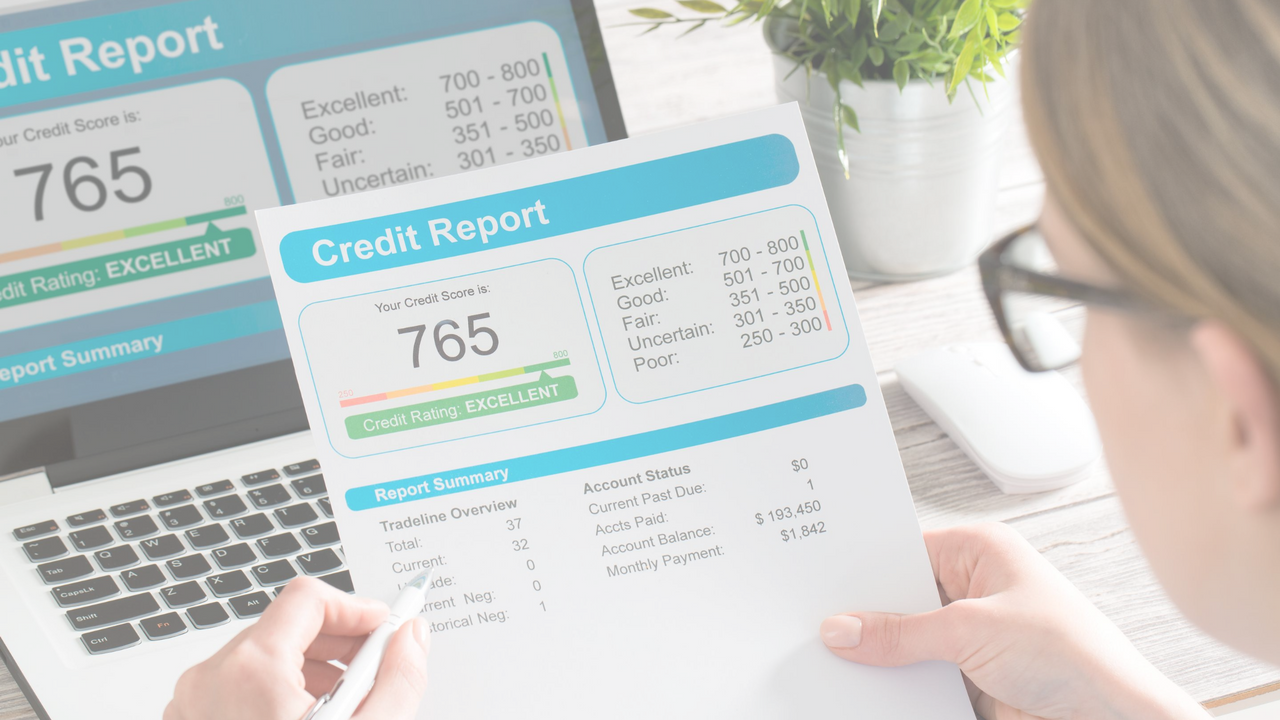Understanding Your Credit Score

It’s no secret that many Americans have very little knowledge of their credit score or general knowledge about keeping credit scores healthy. For example, VantageScore reported in their 2019 annual survey about consumer understanding of credit scores the following:
- 78% of respondents in 2012, but only 62% in 2019, correctly indicated that people have more than one credit score. [That is down 16% from 2012]
- 85% in 2012, but only 66% in 2019, correctly answered that keeping a low credit card balance helps raise a low credit score or maintain a high one. [That’s down 19% from 2012.]
The study found that the people who responded thought they had excellent or good knowledge. In fact, more people in 2019 said that they were confident in their knowledge than they were in 2018. But, as you can see, people actually know less about their credit scores. They just think they have a very firm grasp on the subject.
Understanding these numbers and the impact they will make in your life is paramount to your family’s financial security and success. So, let’s go over some general knowledge of credit scores to understand what they mean and how to use them to your advantage. Consider this Credit Score 101!
Understand the Credit Score Numbers
The range of credit scores goes from 300-850, with 300 being poor and 850 being excellent. This scale is designed to represent your credit risk, AKA: the likelihood you will pay your debts on time. A higher number means you’re less risky to potential lenders.
What Impacts Your Credit Score
There are a variety of things that will impact your credit score, both for the better and for the worse. This list is ranked from most to least important, although the least important is still very important, so don’t overlook it!
Payment History
On-time payments is the single most important factor when determining your credit score. Honestly, I don’t know if people think about it because it’s such a simple concept. When you pay your debts on time, you show future lenders that you are responsible, thus making you less risky in lenders’ eyes and boosting your credit score.
If you’re neglecting your minimums or timely repayments, it’s likely you could benefit from an organizational system. At the end of the day, you need to understand which bills are due and pay attention to the due dates. Look at your budget to get a better handle on your cash flow or possibly overhaul your entire personal financial plan.
Key Takeaway: Keeping up with at least the minimum payment and paying on time is critical to maintaining a good credit score.
Amount of Debt
The amount of debt you owe is responsible for 30% of your credit score and it's the second most important factor that will help you climb up the credit score rankings. This is also known as your credit usage. It’s the ratio between the total balance you owe and your total credit limit on all accounts (not just your credit cards).
Not surprisingly, maxing out your cards hurts your credit score because it keeps your utilization rate way up there. It also throws off the ratio of debt to income - it’s not a good look to have more going out than you have coming in.
On the flip side, paying down your debts and keeping your balance owed low in comparison to the limit on your cards will benefit you and boost your credit score. Learn more about good versus bad debt here.
Key Takeaway: Maintain a low balance on your cards so the balance owed to the credit limit ratio is low.
Credit History
The reality is that you have to build a credit history to show that you are a responsible person and lower your credit risk, which means you do have to take on some debt. After all, you can’t repay what you don’t owe. Some also call this your credit age and it accounts for 15% of your total credit score.
I can’t emphasize this enough: be smart about this one! Opening lots of accounts all at once will, not surprisingly, hurt your score because you have lots of new accounts and no history with them. On the other hand, closing an account could also hurt your score, especially if you’ve had it for a while. The good news is that closed accounts stick around on your credit score for 10 years before they drop off, giving you time to build up a history with another account.
To build a credit history, take on what you know you can pay off. That way, you can keep your amount of debt owed low. For example, you may want to utilize a credit card for your daily expenses that you would come out of your checking account anyway. Then, when the bill is due, completely pay it off, so you’re not carrying a balance from month to month. You are doing a few things: illustrating your good payment history, keeping your debt low, minimizing the amount paid in interest, and building a credit history.
Key Takeaway: Credit history builds trust. It shows you can manage your money wisely. The longer your accounts are open (and healthy), the more trustworthy you look.
Account Mix
Your credit mix accounts for 10% of your credit score. This is the variety of debts and credits you have, such as revolving credit card accounts and loans. Since it is not a highly significant factor in determining your credit score, don’t open a personal loan just to have it on your account. Banks just like to see that you can manage a variety of debts well.
That said, if you’ve only ever had loans (perhaps you’re just out of college and haven’t had time to build up a credit history with a mixture of credits), it could help your credit score to open a credit card account and pay it off each month, like I mentioned in the section above.
Key Takeaway: Your credit mix is a minor factor in your credit score. As you get a handle on the other elements that make up your credit score, consider the mix of accounts that you have open and add in variety if necessary.
Credit Inquiries
When you open a credit card or apply for a loan, the creditor or lender will perform a credit inquiry. This means that they may review your credit standings. There are two types of credit inquiries: soft and hard.
Soft inquiries don’t show up on your credit report or affect your credit score. Things like checking your own score or pre-qualification offers on some loans or credit cards are soft inquiries.
Hard inquiries do contribute to your credit score (10% to be exact). These inquiries show up on a credit report. Lots of hard inquiries, especially if your credit history is young, can hurt your credit score because it looks like you’re opening up lots of accounts at once. Don’t be afraid to shop for loans, though, because sometimes multiple inquiries for the same thing in a single period (mortgages and auto or student loans) could be treated as one inquiry when calculating your credit score.
Key Takeaway: The fewer hard inquiries on your account, the better! But please, do check your credit scores often and know where you stand.
Credit Scores at the End of the Day
Credit scores aren’t that scary at the end of the day! However, you must understand your credit score and the factors that make up that three-digit number to make informed financial decisions. Credit scores directly affect the loans you get and their rates. It may not seem like there’s much of a difference between 1% and 2% interest rate, but the larger the debt owed, the more interest you’ll pay.
To work toward having or maintaining a credit score in good standing, show that you are trustworthy. By building a solid credit history and having a good account mixture, you’ll show you are consistent and can be trusted with your money. Keep your debt below a certain threshold (for credit cards, it’s below 30%). And, of course, pay your bills on time and organize yourself!



